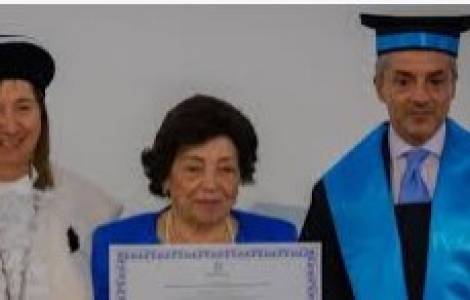
Rome (Fides News Agency) - "There is a long history of friendship between our two countries, similar to the time when a Pope received, for the first time, representatives of nationalist movements at war with colonizing Portugal," said Maria Eugénia Neto, a celebrated Angolan writer and poet, in receiving the Laurea Honoris Causa awarded to her by the University of International Studies in Rome - Unint.
"Italy was the first Western European country to recognize Angola's independence on February 18, 1976," said Neto, who also wanted to recall one of the most significant events in the countries' history of liberation from colonialism. Although little known, it was the historic meeting on July 1, 1970, during which her husband Agostinho Neto, Marcelino dos Santos and Amílcar Cabral were received in private audience by Pope Paul VI in recognition of the rights to dignity and self-determination of the African peoples respectively represented by the three revolutionary leaders in Angola, Mozambique, Guinea Bissau and Cape Verde, at a time when these peoples were living under the colonial yoke of the Portuguese fascist regime.
"During the meeting, Pope Paul VI handed each of the African leaders a copy of the encyclical Populorum Progressio," the Angolan writer recounted. The papal encyclical, published in March 1967, denounced and criticized neocolonialism, affirming the right of all peoples to prosperity, as well as denouncing all forms of discrimination that deprive man of freedom and fundamental rights."
"Only culture and civilization will help us to have a lasting and deep peace with human and moral roots. We urgently need to strive for more love, justice and happiness in the world. Culture and civilization will replace weapons and intolerance." This is how the poet expressed herself in the Lectio Magistralis delivered yesterday, October 5, 2023, in Rome.
Agostinho Neto, physician, poet, writer, who was the first president of the Republic of Angola and led the revolution against centuries-old Portuguese rule. His wife Maria Eugénia was close to him during his imprisonment, exile and the liberation struggle she fought with him, and the academic recognition she was granted falls in the centennial year of her husband's birth.
In the Laudatio, University Rector Mariagrazia Russo recalled that Maria Eugénia Neto "was born on March 8, a day on which we celebrate women's right to emancipation. And she demonstrated throughout her life, the ability to know how to fight, a struggle shared with her husband Agostinho Neto, the first president of the People's Republic of Angola, who in order to defend his country's self-determination suffered torture, imprisonment, and exile. Maria Eugénia always accompanied him, supporting him and drawing the world's attention to his case, spreading his poems abroad and echoing the voice of a man in prison who risked life to defend the rights of a people. Agostinho Neto lived for her and found the strength in her to go on in his harsh daily life as an illegal immigrant, guerrilla, fugitive, rebel, prisoner, exile. (AP) (Fides News Agency 6/10/2023)